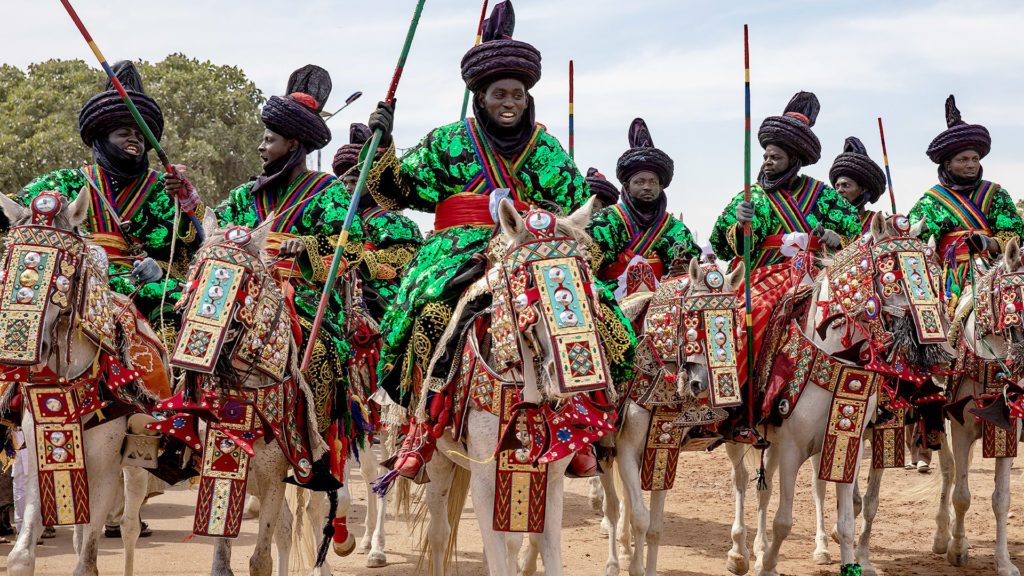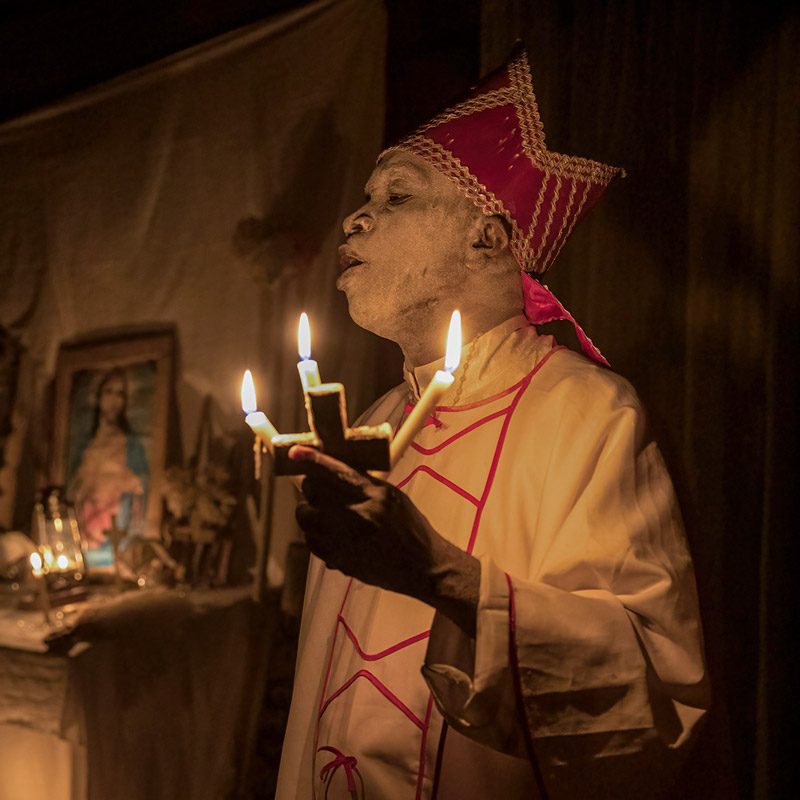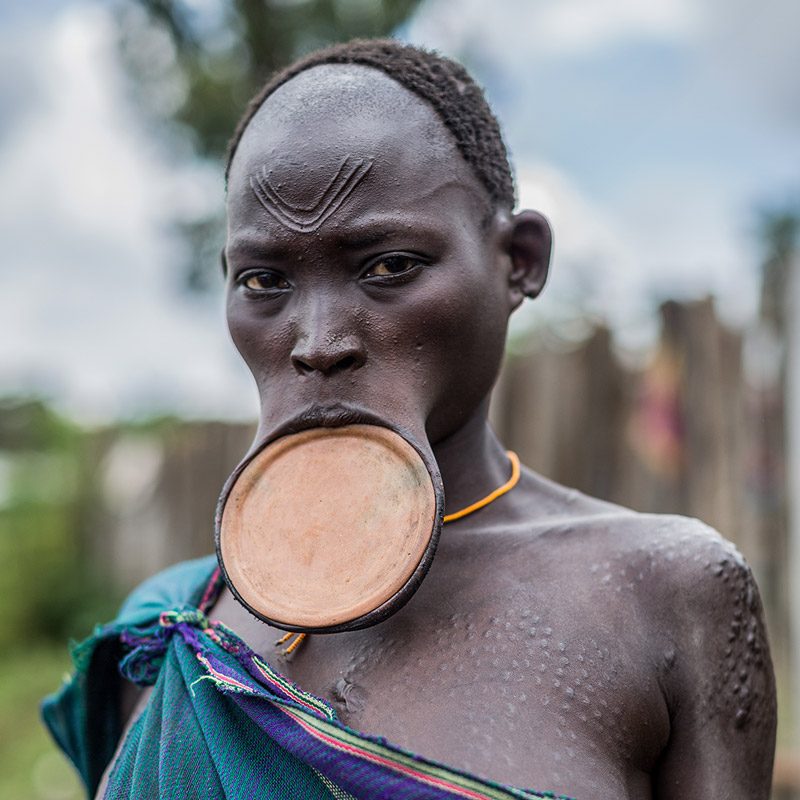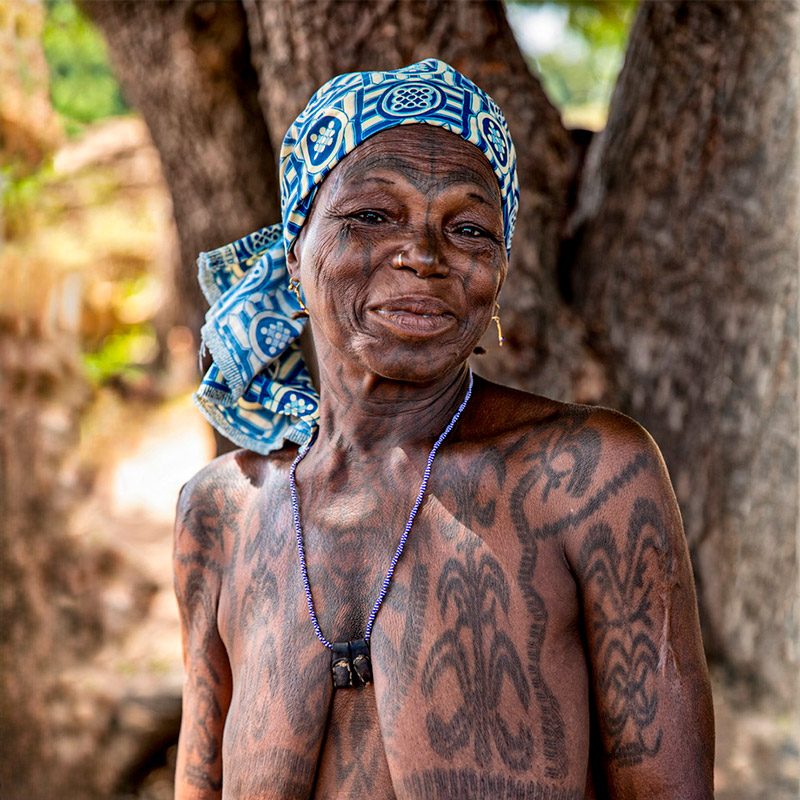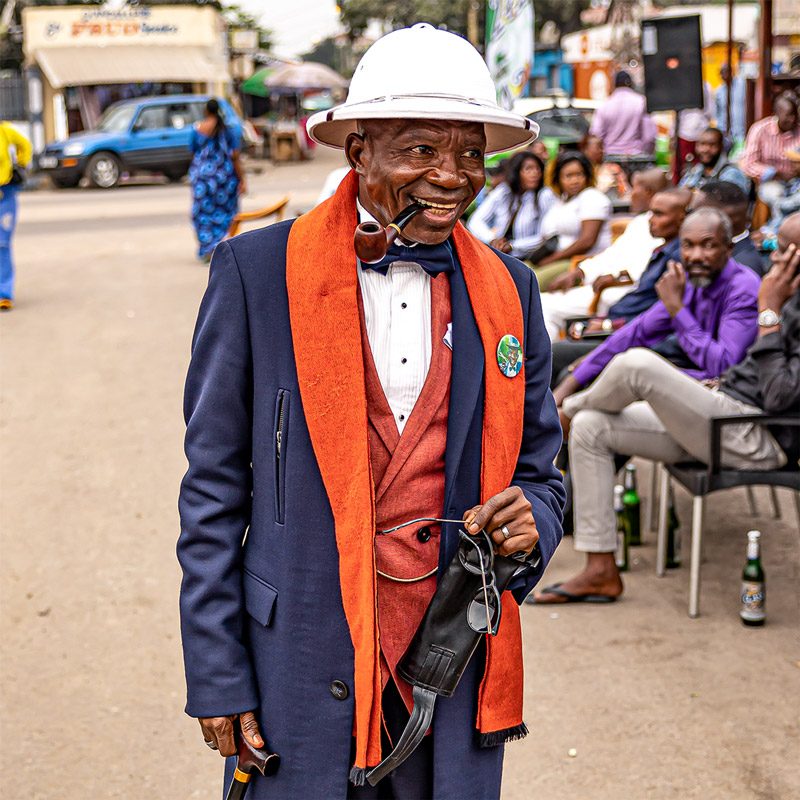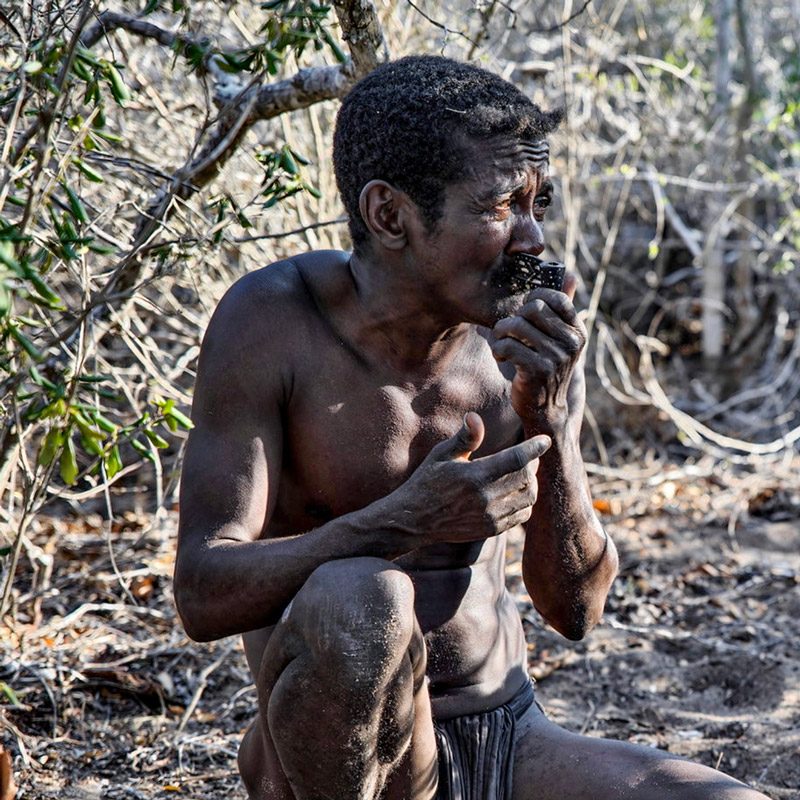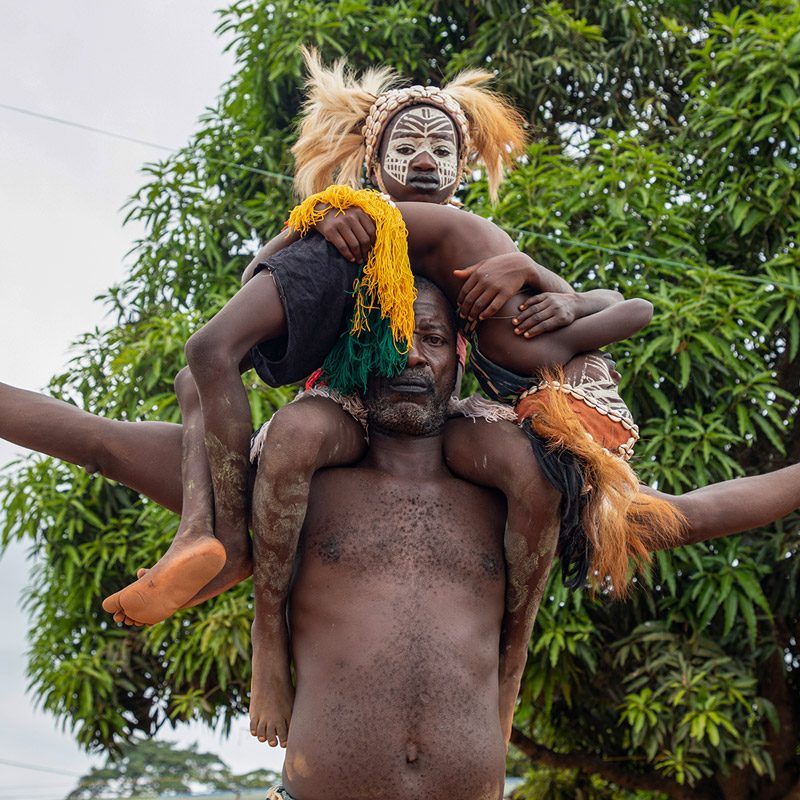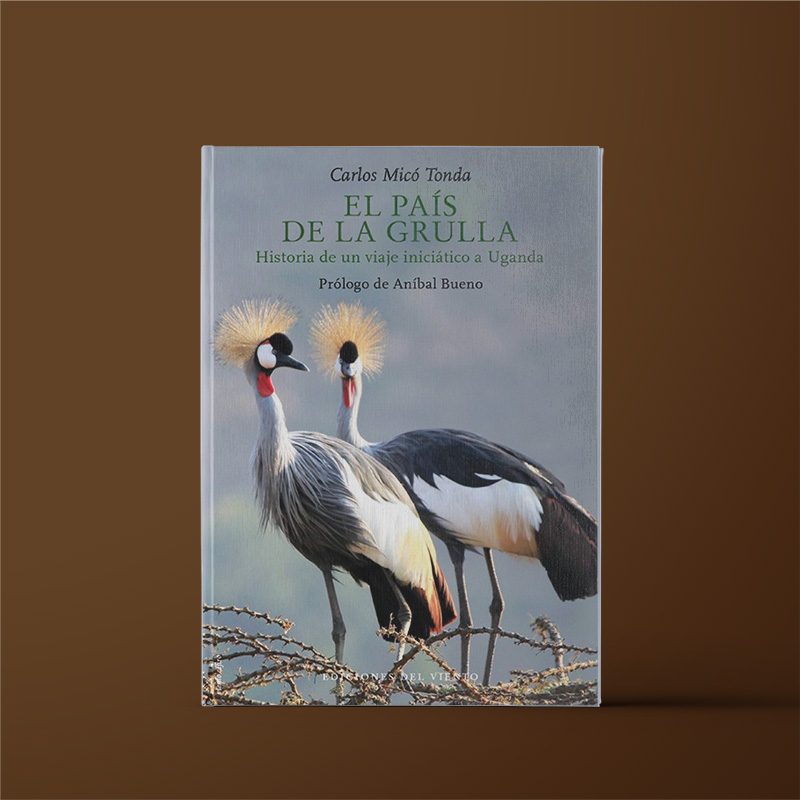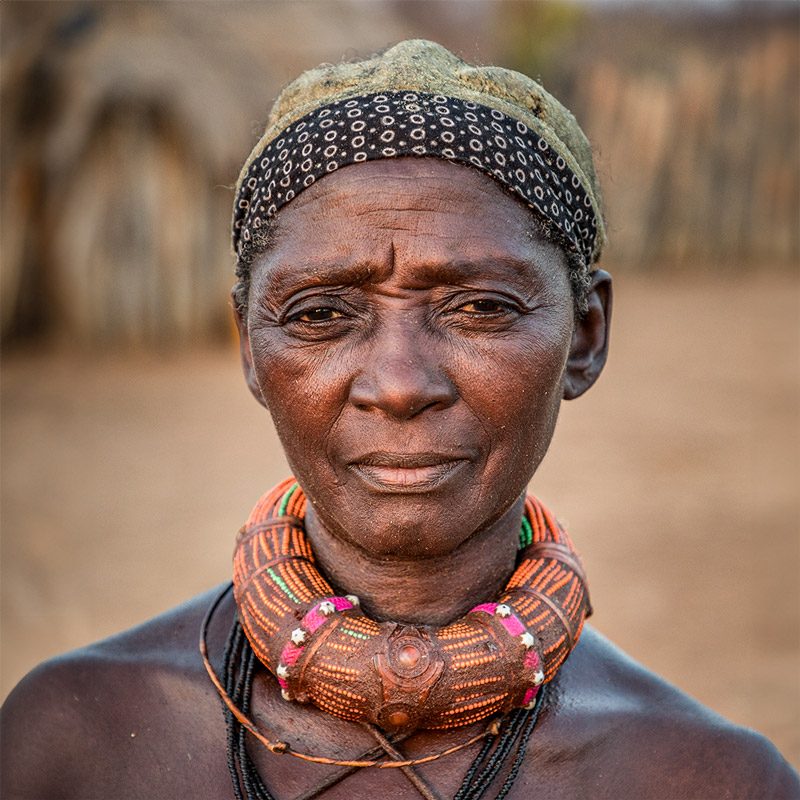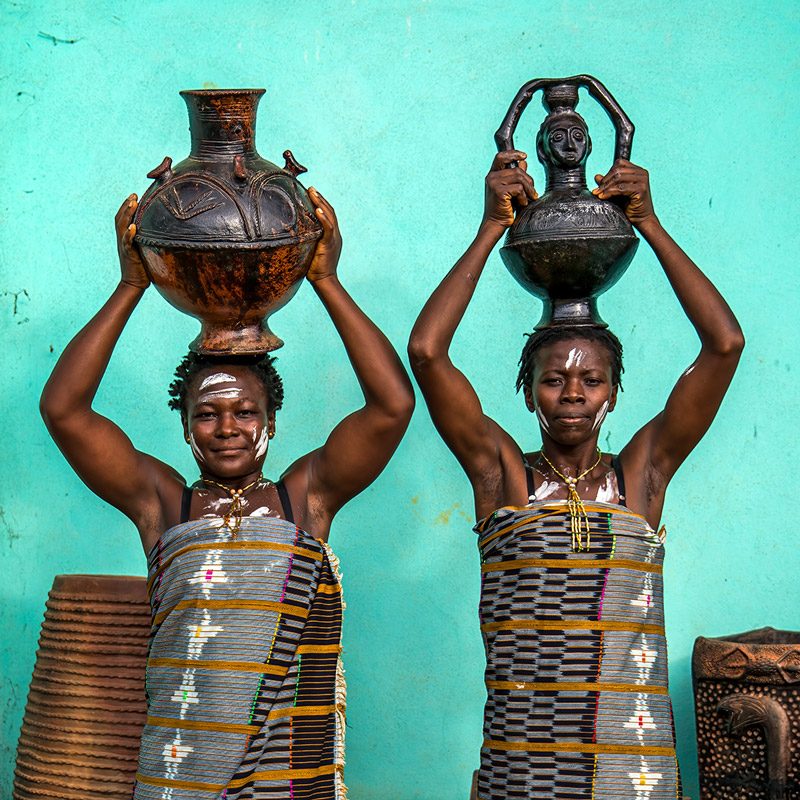The Durbar Festival is a cultural, religious and equestrian celebration held by the Hausa people annually, usually coinciding with major Muslim festivities. It was born as military parades in the 14th century. During the celebration of the Durbar Festival, each noble house parades before the Emir, acting as a regiment, to demonstrate their loyalty to […]
Bwiti is a cult or spiritual movement practiced by the Fang tribe of Equatorial Guinea, Cameroon and Gabon, as well as other ethnic groups such as the Punu and Mitsogo. The etymological root of the word bwiti is a distortion of the word Bo-hete, which means empowerment or release of a fluid. Therefore, bwiti would […]
Foreign visitors started visiting the Mursi people in the 1980s, attracted by their unique tradition of stretching their lower lips with wooden or clay disks. Until then, the Ethiopian region of the Omo River Valley had been closed to foreigners (including Christian missionaries and Western NGOs) since being conquered by King Menelik in the late […]
When Joan Riera (founder of Last Places) was studying Anthropology in the mid-1990s at Richmond University in London, he came across a rare book titled ‘The Dukkawa of Northwest Nigeria’. The author was the anthropologist Celsius Prazan, a pastor from Chicago who lived among several tribes of northwest Nigeria in the 1970s. As today, Joan, […]
Comprising over 12 million individuals, the Bakongo people are one of the largest Bantu-speaking groups in Central Africa. They developed agriculture and commerce and became the founders of the Kongo Kingdom in the 15th century. The descendants of this powerful African kingdom were colonized in the 19th century by the Belgians, the French and the […]
One of the most interesting peoples unknown to the outside world is the Mikea. There are barely 1,500 individuals, and they live inside the thorn forests of southwestern Madagascar. Reading about the Mikea people, we have learned that they are more of a socioeconomic group than an independent ethnic group. According to French anthropologists who […]
The We or Guere people are made up of about 800,000 people and are one of the most important in the Ivory Coast and Liberia. They are known for being great artisans, especially for their masks, which are one of the main differentiating elements of this society. These masks are associated with the animistic spiritual […]
Africa, that great continent of more than thirty million square kilometers, one and a half billion inhabitants and fifty-four sovereign nations with thousands of different cultures that, erroneously, tends to be homogenized. That is the macro scenario. But it is the narrative about small regional stories and particularities what this territory urgently needs. The demystification, […]
Gambue people share many traditions with their northern neighbors: the Muila and the Handa. One of them is the use, by women, of bead and clay necklaces. They also have complex hairstyles, which indicate the marital status of each woman. Nowadays, they can only be found in remote villages and only in the older generations […]
According to oral tradition, the Baule people were forced to leave Ghana when the Ashanti Empire rose to power. While they were fleeing to the west for their lives, they came to the Komoe River, which they were unable to cross. With their enemies chasing them, they began to throw their most prized possessions into […]
